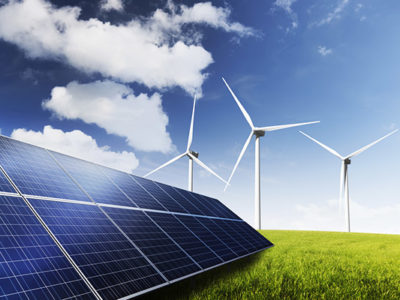China’s Energy Transition
Q&A with Barbara Finamore, Senior Attorney & Asia Senior Strategic Director, NRDC

Barbara Finamore is an attorney and leading expert for Natural Resources Defense Council on a wide range of China climate, energy, and environmental issues. I worked with Finamore to found NRDC’s Beijing office in 2006.
In her new book Will China Save the Planet?, Finamore explores efforts by China, today the world’s largest emitter of global greenhouse gas emissions, to curb pollution from its power sector and transition to clean energy.
Earlier this month, Finamore spoke with students, faculty, and the UCLA community at a public lecture at UCLA Law. After the event, I sat down with Finamore to discuss China’s energy transition. The conversation below has been edited for length and clarity.
What are you hoping to achieve with this book? What is the message?
I want to use this book as an opportunity to elevate the discussion about climate change. Particularly in universities, students and young people are increasingly concerned about climate change. They’re the ones who will have to spend their lives dealing with this. Many people don’t realize what China has done over the last few years, not just in cutting its coal consumption, but in helping to catalyze the global energy – green energy – transformation.
In the book you go through all the things China is doing and we know there are positive and negative aspects. The negative side is that Chinese greenhouse gas emissions have grown at a spectacular clip. China’s total emissions each year now exceed US and EU emissions combined. Coal is still a substantial part of China’s energy structure. Yet, we know they have invested a tremendous amount in renewables as well. How should we think about these contradictory aspects of the China story?
China is an important story for people to understand how challenging it is to make a transition away from an economy based on fossil fuels. China is the poster child for coal-fueled economic development, but every country has been relying on fossil fuels to varying degrees. China has been amazing to me, especially the fact that they’re working to cut their reliance on coal, because coal has been extremely instrumental in powering their economic miracle.
But China has come to the conclusion that more and more countries and cities and banks are coming to: that it’s not sustainable. The story I detail in the book is how hard it is for the world’s second largest economy to make the transition away from coal to cleaner, greener energy sources.
So what’s the answer to the question of the book’s title?
I think the jury is still out. China is very good at building clean, green infrastructure and it leads the world now in solar and wind capacity, electric vehicles and electric battery development. The good news is that those advances don’t just benefit China. It is bringing down the cost of clean technologies substantially for the rest of the world. China is now entering a second phase of reforms that are necessary for it to really reap the benefits of these clean technologies and to ramp them up to the levels where they are really going to make a substantial impact on climate change.
What’s been the reception to your book, particularly in the current American political climate toward China? Has anyone suggested you are insufficiently skeptical of Chinese environmental pledges?
There is a lot of concern about what China is doing right now on a whole range of issues. I don’t get into that so much in my book because my feeling is we have no choice other than to engage China on climate change. Both because China is the biggest contributor to carbon dioxide emissions and it’s doing more than any other country to transition to clean energy, regardless of what’s happening elsewhere in the country. If we’re going to save our planet we need to accelerate the transition and China is a key factor there. So, I have not gotten a lot of pushback there from anyone who’s asked, “Why are you working with China?”
What gives you the most hope? What can we learn from China? On the other hand, what gives you the most pause right now about China’s actions and the environment?
What gives me hope is something I never thought I would see: we’re rapidly approaching the point where, without subsidies, clean technologies like solar, wind, and electric vehicles are becoming cost competitive with dirty fuels and dirty power generation. That market reality is what’s going to carry the day, I hope, as long as we, as a global community, can stop subsidizing dirty fuels and dirty power, to provide a level playing field for new technologies to compete.
What gives me the most concern is that the obstacles China faces are similar to what every other country in the world faces. The only real way to accelerate these technologies to where they need to be is to work together. That’s not happening for the most part, right now, at least at the government-to-government level.
Here in the U.S., it seems a lot of the political energy on climate change is coming from youth. Is there a similar demand in China from young people?
It’s different in China. Recent polls show that as a whole, people in China understand that climate change is real, that it’s caused by human activity and that the impacts are happening now and are growing in intensity and severity. Most people believe that the government is responsible for addressing the problem and is taking action. So there’s less of a bottom up push by youth in China.







Reader Comments